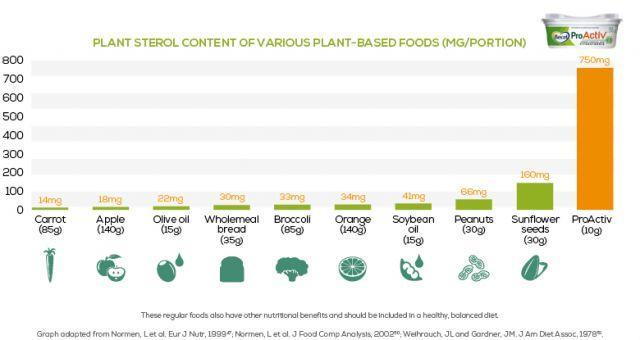
Phytosterols: what they are and what they are for
I phytosterols they are plant lipid compounds with a chemical structure very similar to cholesterol and lipids of animal origin.
Phytosterols have the ability to inhibit the absorption of some lipids in the intestine, decreasing the concentration of cholesterol in the blood.
Phytosterol consumption and health
Numerous studies have shown that phytosterol intake, both in the form of supplements and in nutrition, allows to lower the concentration of cholesterol LDL in the blood, thus allowing to preserve heart and vascular system health, as well as regulate weight.
Lately there has been an increase in the recommendation, by doctors, health informants and operators in the sector, about theadditional intake of phytosterols in the form of supplements.
The latter allow you to get a greater contribution of these healthy substances in a short time, but in the long term they do not generate that useful education in health and in the care of one's well-being which cannot be ignored if one decides to live long and feel good.
Integrating nutrition can be functional as long as you are unable to gather the information necessary to improve your lifestyle on a permanent and daily basis.
Finally, the supplements, although useful in extreme cases of deficiency, cannot replace the numerous and larger ones advantages of a varied diet to you.
Many of the foods that contain good amounts of phytosterols are healthy thanks to the contribution of additional substances that, precisely for one synergy of nutritional principles, optimize its absorption, multiply the benefits and eliminate the contraindications.
Phytosterols: where they are found
I phytosterols are found in the form of Dietary Supplements, but above all in nature in food accessible to all.
Foods with the highest content of phytosterols are oilseeds and nuts:
> Pistachios: pistachios, among the nuts, are the one that has the highest content of phytosterols, especially unsalted ones;
> sesame and sunflower seeds, as well as flax seed: sesame is the major source of phytosterols. Used dry, in salads, in the form of gomasio, toasted, and also in tahini, the consumption of sesame allows you to easily reach high quantities of phytosterols through food. Sunflower seeds can also be used in the form of oil, quickly pressed and without solvents;
> peanuts: peanuts contain good quantities of phytosterols and, after pistachios, are the dried fruit with the highest concentration;
> nights, hazelnuts, almonds, pine nuts: All nuts in general contain phytosterols, and eating them in moderate quantities throughout the day is simple.
Phytosterols are also present in green leafy vegetables, in fruit, and in crucifers such as cabbage and broccoli.
They are almost free of phytosterols meat Of any kind.


























